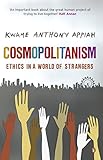http://d.hatena.ne.jp/sumita-m/20080619/1213899344やhttp://d.hatena.ne.jp/sumita-m/20080614/1213466126でも引用した、Kwame Anthony AppiahのCosmopolitanism*1を少し以前に読了する。これについては後日。

Cosmopolitanism: Ethics in a World of Strangers
- 作者: Kwame Anthony Appiah
- 出版社/メーカー: Penguin
- 発売日: 2007/11/01
- メディア: ペーパーバック
- クリック: 4回
- この商品を含むブログ (7件) を見る
さて、Benjamin LeeのCultural Analysis in an Age of Globalization*2を読み始める。
以前、http://d.hatena.ne.jp/sumita-m/20080215/1203101414やhttp://d.hatena.ne.jp/sumita-m/20080217/1203218119でちょこっと話題にしたimaginary(名詞)という言葉について。
Benjamin Leeは「遂行性(performativity)」という概念を”two lines of research”を「結び合わせる(bring together)」ために使用するという(p.10)。一つはマルセル・モース以来の”the anthropological research on gifts and exchange”(p.10)であり、もう一つは”a group of us who have been working with the philosopher Charles Taylor on developing the notion of `social imaginaries`.”である(p.11)。曰く、
以前imaginaryが話題になった時には、ベネディクト・アンダーソンやラカンの名前が出てきたが、コミュニタリアンの政治哲学者のチャールズ・テイラーが”social imaginary”という概念を展開していたか。ビブリオグラフィには、Charles Taylorのテクストとして、
A social imaginary consists of the `common understanding which enables us to carry out the collective practices which make up our social life`. While at first glance the notion of a social imaginary seems almost too simplistic to bear the theoretical burden placed on it, when it is extended to include ideas of circulation and exchange, it will turn out to be an extraordinary rich concept. It brings together many of the issues which the linguistic turn has been concerned, and produces a framework that will allow us to compare and contrast precapitalist and capitalist societies: from magic and ritual to money and capital. (ibid.)
Sources of the Self Harvard University Press, 1989
“Modern Social Imaginaries” Public Culture14-1, Winter 2002
が示されている。
また、
ところで、Benjamin Lee自身について;
Derivatives are part of the new sociostructural imaginary of capitalism in its latest act of self-destruction and self-resurrection: unlike futures exchanges of the past, such as Osaka’s seventeenth century rice exchange or Chicago’s wheat trading of the eighteenth century, derivatives markets have nothing to do with the physical production or delivery of a concrete use value. Rather, they constitute a quasi-autonomous sphere of circulation that they simultaneously presuppose and are instrumental in creating. They accomplish this by developing forms of objectification and subjectivity that draw upon the existing social forms of production-based capitalism to engender a new social ontology geared to the character of connectivity. (pp.26-27)
I’m the product of an earlier generation of global circulations. My father was a graduate of Tsinghua*3 and Xinan Lianda*4, my maternal grandfather the controller for Yenching University*5, now Beida*6. The house my mother grew up in still stands on campus. When I was a child, we traveled regularly to Japan, Taiwan, and Hong Kong, and I watched them transform themselves from global backwaters into global leaders. I remember as a child looking for Coca Cola to drink because we weren’t sure about the local drinking water, and wondering why there wasn’t any ice cream anywhere. (p.2)
*1:See http://d.hatena.ne.jp/sumita-m/20080424/1209010822
*2:See http://d.hatena.ne.jp/sumita-m/20080517/1210964878
*3:清華。
*4:西南連大。
*5:燕京大学。